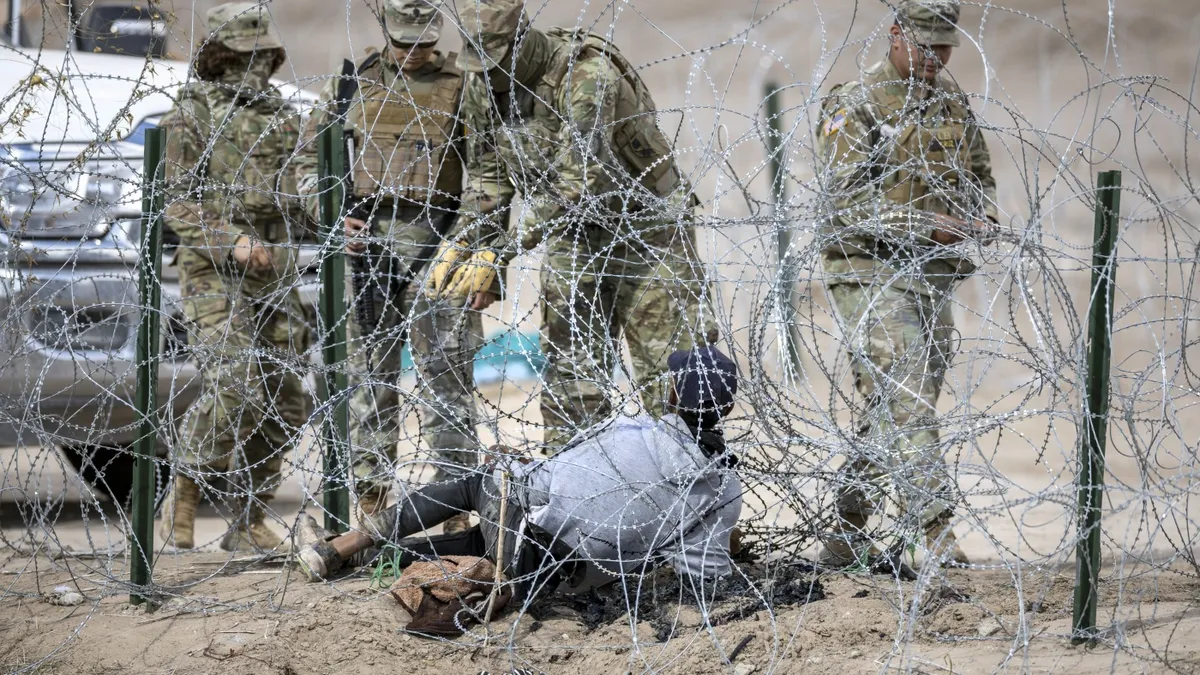
In a significant development regarding immigration enforcement, National Guard troops are slated to play a pivotal role in various operational activities, as detailed in a memo from the Department of Homeland Security (DHS) obtained by NPR. This memo outlines the multifaceted responsibilities that these troops will undertake, which include night operations, rural interdiction, guard duty, and riot control within detention facilities.
Three weeks prior to the issuance of the memo, DHS officials requested a total of 20,000 National Guard troops to bolster immigration enforcement efforts. This memo, dated May 9 and authored by Andrew Whitaker, the executive secretary at DHS, specifies the roles that these troops will fulfill. According to the document, up to 3,500 Guard personnel will be tasked with the critical requirement to Attempt to Locate fugitives.
Additionally, the memo indicates that another 2,500 Guard soldiers will provide essential support for detention operations. A substantial portion of the troop request—up to 10,000 troops—is earmarked for transportation support, facilitating the intra- and interstate transport of detainees, including unaccompanied alien children. Furthermore, around 1,000 troops will be responsible for various duties, including document translation and interview assistance.
As of now, the Pentagon has yet to approve the troop deployment request. During a hearing with Army officials, Senator Jack Reed, the ranking Democrat on the Senate Armed Services Committee, highlighted that this would represent the first occasion where the National Guard is utilized for immigration enforcement within the United States. Army Secretary Dan Driscoll informed the committee that while preparations are underway to mobilize the forces, there are currently no specifics regarding the operational scope of these troops, and he emphasized that they would not be deployed for any unlawful activities.
Officials have acknowledged several unanswered questions surrounding this deployment, particularly concerning the legality of transferring troops from one state to another. Multiple U.S. officials reported to NPR that the Pentagon is collaborating with state governors to finalize which states will contribute troops, with expectations that the majority will come from Republican-led states. Deployments could potentially commence as early as next month, indicating a swift move towards enhanced immigration enforcement.
DHS Assistant Secretary Tricia McLaughlin commented on the situation, stating, "DHS requested 20,000 National Guard members to help carry out the President's mandate from the American people to arrest and deport criminal illegal aliens." She emphasized the commitment of the Department of Homeland Security to utilize every available tool and resource to remove criminal illegal aliens—including gang members, murderers, pedophiles, and other violent offenders—from the country, asserting that the safety of American citizens is the top priority.
This unfolding scenario marks a pivotal moment in the intersection of military involvement and immigration policy, raising critical questions about the future of both national security and immigration enforcement in the United States.